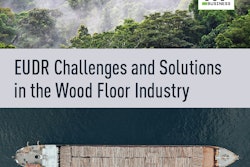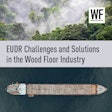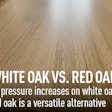A few weeks ago, I talked about pending legislation regarding the use of formaldehyde in products used by children. I'd now like to draw attention to proposed legislation in Massachusetts.
It's a short law, and it is designed to ban the use of tropical material in state-funded projects. It has an allowance for the use of FSC-certified material, but recognizes no other certification systems.
First, all analysis, by organizations from the World Wildlife Fund to the United Nations to the U.S. Forest Service state that the best way to preserve forests is to have a healthy forest industry. Forests have value as standing forests-the moment you decrease demand for tropical wood products, that forest ceases to be valuable to the community around it. That forest is much more likely to be cleared and replaced by farmland or ranching. The bottom line is that boycotts lead to deforestation.
This is a controversy raging in several other states that are now looking to repair ocean boardwalks that were either damaged in Hurricane Sandy or just need updating. We all know that wood is the best environmental choice when you consider both the energy required to produce it and the product's carbon footprint, but even so, New York City is considering specifying concrete and recycled plastic lumber over wood. Do we really want to spend a summer day strolling on a concrete boardwalk?
We all know that a longer use cycle is more green, right? This article quotes Atlantic City engineer John Feairheller, who said that ipé "lasts longer than it takes the trees to grow." He compared it to Southern yellow pine, which, depending on its grade, lasts five to eight years. Still, he's being forced to look at non-tropical alternatives in wood, as well as non-wood products entirely because of political pressure.
Who is promoting this law and similar protests? Well, there are a few environmental groups that support it, but if you want to know the real force behind this, the clue may be in this key paragraph:
"Where state monies are being used, recycled plastic lumber shall be considered as an alternate material in all bids for outdoor and marine projects where hazardous material treated woods (HMTW) and tropical hardwoods are typically used…"
Wood as a material is always under a great deal of pressure from substitutes. What's ridiculous is when an "environmental" reason is given to attack wood, given that it is so incredibly environmentally friendly by its very nature and that, again, only by giving forests economic value do you encourage increasing the number of trees in the world.
There are projects where LVT is the simply the better choice over hardwoods, and I am sure there are times when a WPC (Wood Plastic Composite) is better than wood. However this is something that should be determined by the specific project and by the desired performance and appearance. It is not something that should be legislated, and true environmental issues should be discussed, not used to "greenwash" the desire for a competitive advantage by another industry.
































